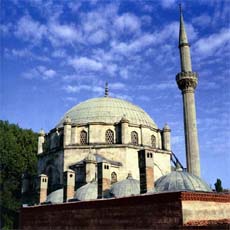For the past century, Muslims in the Balkans are the victims of many episodes of ethnic cleansing by the crusaders and later by the Communists in
In this context, we will highlight the sufferings of one million Muslim Bulgarians who are uprooted and forced to flee from their country before giving up their property. Despite all this, Islam's presence in
Historical Dimension:
The Balkan Peninsula has strategic geographic position, controlling the access to the Silk Road, the ancient trade route linking
Muslims managed to gain footholds throughout the Balkans since the Abbasid era in the 9th century. By 1396, the armies of the Ottoman Empire controlled all of
The Christian kingdoms in Western Europe launched many crusades to take over
After the dissolution of the
Who Are the Bulgarian Muslims?
Muslims in
The number of Pomak population changed several times due to the suppression policy by the Christian and communist governments. During and after the Balkan Wars of 1912-1913, the biggest waves of Pomak migrated to
Bulgarization of the Muslims:
Since the Bulgarian independence in 1908, the nationalist regimes marginalized the Muslims and traditionally considered them as foreigners, even if they were ethnically Bulgarian. The Orthodox Church is very influential and with the help of the Bulgarian nationalists they forced the Muslims to convert to Christianity. All the resisting Muslims were wounded, imprisoned, killed or deported. Thousands of them fled to
Mosques were converted into churches. Out of the 44 mosques in
There are pressures on Muslims to change their names, vestment and language. Since 1942 a new law was passed which commanded Muslims to change their names to Bulgarian ones. About 2000 Turkish and Pomak village names were also changed to Bulgarian. Pomaks were banned from attending Turkish schools or use the Turkish language and they were forbidden to open private schools. Then Muslim school boards were abolished and unified with Bulgarian school boards. Thus all their non-Bulgarian daily life was subjected to censure.
In 1944, the Communist regime came into power and launched the assimilation campaigns against the Muslims. Pomak villages from the Rhodopes region were forced to resettle in
In April 1956, the Bulgarian Communist Party decided to create a unified socialist Bulgarian republic. Further they proceeded in changing the names of Muslims to Bulgarians by terror. Pomaks have developed a strategy to `compromise name and behaviour'. A Pomak, who was born before 1912 and lived until after 1990, has been forced to change his Muslim name nine times for instance.
During most of the Communist period, under the leadership of Todor Zhivkov-secretary of the Communist Party from 1954, the country's premier from 1964 to 1971 and head of state from 1971 to late 1989-the policy of forceful assimilation continued under the so-called `Process of Rebirth'. After their 'success' with the Pomaks, the Bulgarian authorities started to work in the same way on the other ethnic Muslims. Therefore, in practice Communism is equivalent to Bulgarian extreme nationalism which aims to Bulgarize the significant Muslim minorities.
Post Communist Era:
With the fall of the racist regime of Todor Zhivkov in November 1989, the religious restrictions in
In each Bulgarian village there are still some former Communist Party members or local security forces that had persecuted the Muslim in the past. Therefore, Muslims are still afraid to speak about their harsh experiences. They still feel threatened by the Socialist Party (former Communist Party) members, fearing that one day Communists will be in power again and then they will be persecuted again.
It is still impossible to find a single Muslim in the Bulgarian army as a regular soldier. Most of the Muslim Bulgars are uneducated and work as laborers, shepherds, haymakers and the like. Muslims are discriminated against in jobs and education. While the Pomaks want their children to learn Turkish, which is now theoretically possible, in practice local education directors don't allow them to do so.
Inequalities still exist in practice and those who are dissatisfied with their poor conditions continue to migrate to
However, after 1987, Bulgarian Muslims are allowed to reconstruct their mosques and new mosques are built in many cities and villages. Now there are about 1,267 mosques. The Muslim hierarchy was headed by one chief mufti and eight regional muftis who interpret Muslim law.
The study of the Quran had been completely forbidden under Zhivkov and now Quran classes are organized. Muslims also began publishing their own newspaper, Miusiulmani, in both Bulgarian and Turkish.


 Home
Home Discover Islam
Discover Islam Quran Recitations
Quran Recitations Lectures
Lectures
 Fatwa
Fatwa Articles
Articles Fiqh
Fiqh E-Books
E-Books Boys & Girls
Boys & Girls  Articles
Articles










